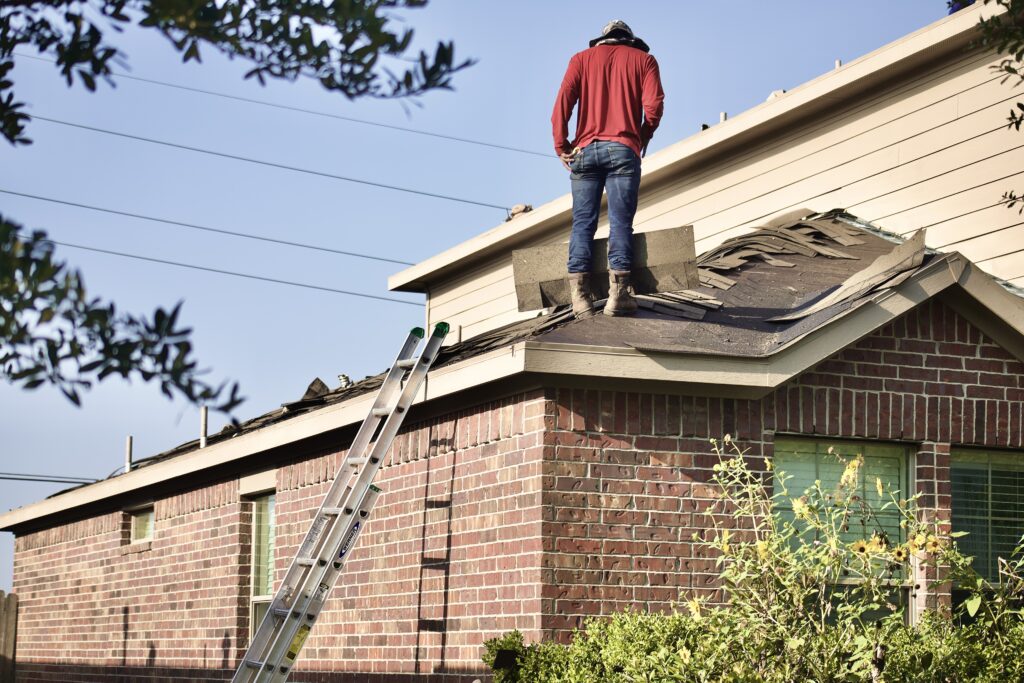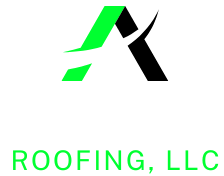Siding Repair & Installation
Get the best siding installation and replacement in Texas.
Top Siding Installation Contractor in Texas
When it comes to your home, it’s important that it looks it’s absolute best and provides a comfortable living space for your family. One aspect that can greatly enhance both the appearance and resale value of your home is siding. In fact, re-siding your home is considered one of the top 10 home remodeling projects in terms of overall payback. With the right choice of siding and professional installation, you can even recover your entire investment. Additionally, many siding options come with lifetime warranties and require no further painting. If you’re thinking about giving your home a makeover or want to improve its energy efficiency, investing in new siding might just be the perfect solution for you.
Siding Repair Experts
All Out Roofing specializes in professional siding installation and repair services. Our expert team can enhance your property, add value, and reduce energy costs with our high-quality installations. With our experienced siding contractors, you can trust us to protect your home and transform its overall look quickly. We are committed to providing the same level of quality and customer satisfaction that you’ve come to expect from our roofing services. Contact us today for all your siding repair needs.
At our company, we specialize in the installation of various types, brands, and styles of siding. This includes vinyl, fiber cement, wood, and composite materials. Our team of highly skilled installers is here to guide you in selecting the perfect siding for your home’s architectural style and your unique lifestyle. We will assist you with everything from choosing the right color to determining the width and price that best suits your needs. Rest assured, we will be with you every step of the way throughout the entire process.

The All Out Commitment
For many construction companies, the most common complaint they hear from customers is the lack of timeliness when it comes to response. At All Out Roofing, we understand how important it is to provide a fast response to every customer inquiry.
That’s why we prioritize eliminating this complaint for all of our customers. No matter the size of the project or the complexity of the roof inspection, we at All Out Roofing are always available to provide free quotes, free proposals, and roofing consultations. Our team of experienced and knowledgeable residential roofers are ready and available to answer any questions you may have.
We understand that when it comes to roofing, time is of the essence. That’s why our team always strives to provide the highest quality of service in the quickest and most efficient way possible. We are committed to providing the best customer experience and ensuring that you are satisfied with every roofing job we take on.
The Most Popular Types of Siding
Installing new siding is a home improvement project that can greatly improve your home’s performance, curb appeal, and value. Let’s take a brief look at the key Pros and Cons of the most commonly used siding materials:
Wood Can Last A Lifetme
Pros
- Visual Appeal: Wood siding adds a natural and timeless beauty to residential exteriors, giving homes a warm and inviting look. It can enhance the overall curb appeal and charm of a property.
- Versatility: Wood siding comes in a variety of styles, grains, and finishes, allowing homeowners to choose the perfect look for their homes. Whether it’s a rustic cedar shake or a sleek and modern board and batten, wood siding provides endless design possibilities.
- Energy Efficiency: Wood siding acts as a natural insulator, providing thermal resistance and helping to regulate indoor temperatures. This can result in reduced energy consumption and lower heating and cooling costs.
Cons
- Maintenance: Wood siding requires regular maintenance to keep it in good condition. This includes periodic cleaning, staining, painting 3-5 years, and sealing to protect it from moisture, insects, and rot. Failure to properly maintain wood siding can lead to decay and damage.
- Cost: Wood siding tends to be more expensive than other siding materials, such as vinyl or fiber cement. The initial cost of installation and ongoing maintenance can add up over time, making it a less budget-friendly option for some homeowners.
- Durability: While wood siding can last for many years with proper care, it is susceptible to rot, warping, and insect damage. This means that homeowners may need to replace or repair sections of their wood siding more frequently compared to other siding materials.
Fiber Cement/Composite Up to 50 years
Pros
- Durability: Residential fiber siding is known for its exceptional durability. It can withstand extreme weather conditions, such as strong winds, heavy rainfall, and even hail. This longevity ensures that homeowners do not have to worry about frequent repairs or replacements.
- Low maintenance: Unlike other siding materials, residential fiber siding requires minimal maintenance. It is resistant to fading, cracking, and rotting, reducing the need for regular upkeep. This not only saves homeowners time and effort but also reduces long-term expenses.
- Versatility: Residential fiber siding comes in a wide range of colors, textures, and styles, allowing homeowners to choose a design that complements their home’s aesthetics. This versatility enables customization and helps enhance the overall curb appeal of the property.
Cons
- Initial cost: One of the significant drawbacks of residential fiber siding is its initial cost. Compared to other siding materials like vinyl or wood, fiber siding tends to be more expensive upfront. This higher initial investment may deter some homeowners who are working with a limited budget.
- Installation complexity: Proper installation of residential fiber siding requires specialized knowledge and skills. Improper installation can lead to issues like moisture infiltration, which can cause damage to the underlying structure. This complexity often necessitates hiring professional contractors, adding to the overall cost of the project.
- Limited availability: While the popularity of residential fiber siding is increasing, it may still be challenging to find a wide variety of styles and colors in certain areas. The limited availability can restrict homeowners’ choices, making it harder to find the perfect match for their home’s design.
Vinyl Expected longevity 18-30 year
Pros
- Durability: Vinyl siding is known for its long-lasting nature and resistance to wear and tear. It can withstand harsh weather conditions, such as extreme heat, cold, and heavy rain, without warping, cracking, or fading.
- Low Maintenance: Unlike other types of siding, vinyl requires minimal upkeep. It does not need to be painted or stained, and it can be easily cleaned with just a hose and mild detergent. This reduces the time, effort, and cost associated with maintaining the exterior of a residential property.
- Versatility: Vinyl siding comes in a wide range of colors, styles, and textures, allowing homeowners to customize the appearance of their homes. Whether they prefer a traditional or modern look, vinyl siding offers options to suit various architectural styles and personal preferences.
Cons
- Environmental Impact: Vinyl siding is made from polyvinyl chloride (PVC), which is a synthetic material derived from fossil fuels. The production and disposal of PVC can have negative environmental consequences, such as the release of harmful chemicals during manufacturing and the generation of non-biodegradable waste when disposed of.
- Limited Insulation: Although vinyl siding can provide some insulation for homes, it is not as effective as other siding options, such as insulated vinyl or fiber cement. This may result in higher energy consumption and utility bills, especially in areas with extreme climates.
- Susceptible to Damage: While vinyl siding is generally durable, it is susceptible to damage from impact, such as hail or flying debris during storms. It can also fade or become discolored over time, particularly in areas with high sun exposure. Repairs or replacements may be required to maintain the aesthetic appeal of the siding.
